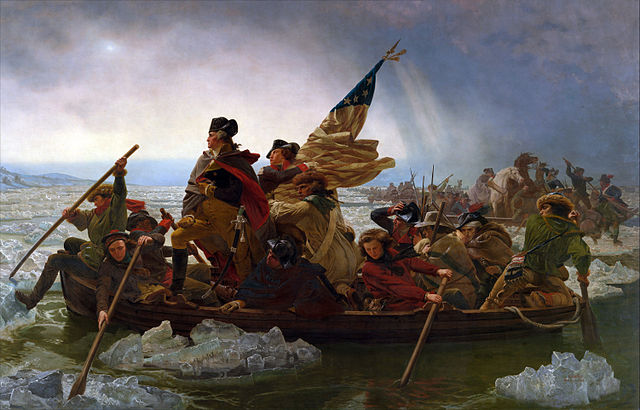
Metropolitan Museum of Art (New York)
Public Domain via Wikimedia Commons
By the winter of 1776, things looked bleak for the patriots fighting the British. They had suffered a string of defeats (New York and other places) that sapped the morale of many patriots. General George Washington’s leadership was being questioned by some leaders, and there was a general feeling that British were going to win unless things changed. The British by this time were of the opinion they were succeeding, though they found the Americans could put up a good fight. With winter upon them, the war paused as normally European armies did not fight during this time. Hessian troops, paid mercenaries hired by the British, were skilled professional soldiers raised nearly from birth to fight. A Hessian force was quartering in Trenton, New Jersey for the winter. General Washington decided to go on the offensive to win a battle and raise the morale of the troops who were suffering through the cold winter.
On the night of December 25, 1776, his army began moving across the Delaware River. The group led by Washington, 2,400 strong, made it to the other side but the other two divisions that made of 3,000 men did not get across at the right time. The Hessians had spent Christmas Day relaxing, eating, and drinking and did not believe the Americans were a threat. They had in fact dismissed warnings the Americans might attack. So, they were unprepared for what happened on December 26. At 8 am, Washington attacked with two columns. By 9:30 am, the German defenses had crumbled, and the town was surrounded. While many Hessians did escape, they did capture several hundred and only lost four lives in the process. Unfortunately, since most of his troops had failed to cross, Washington was without any additional men or artillery to hold Trenton. He was forced to withdraw.
It was a minor battle that had no real strategic impact. The news of the successful attack though raised American colonialists’ spirits. The initiative shown by Washington showed the Continental Army was capable of victory.
Sources:



